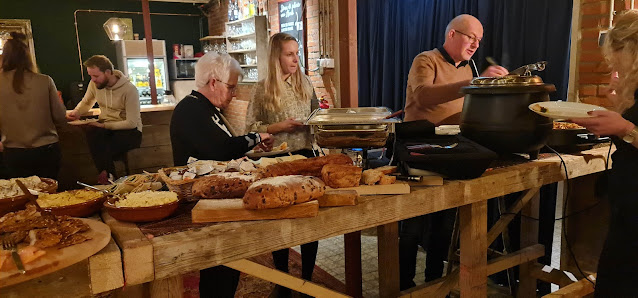Week 20 Mandatory Heat Pumps
From 2026, a hybrid heat pump will be mandatory when replacing the central heating boiler. In this way, the cabinet hopes to become less dependent on natural gas. What is a hybrid heat pump? And will it fit in my house?
With a hybrid heat pump, a house is not only heated with the central heating boiler, but also with a heat pump. The heat pump provides electrical heating and in most cases ensures that your house remains warm without consuming gas. Only when it gets too cold outside (just above freezing point) does your boiler switch on. You also use the central heating boiler for hot water.
Well-insulated houses can also use a fully electric heat pump. This would allow them to completely get rid of the gas if cooking is also done on induction.
Why make a hybrid heat pump mandatory, and not a fully electric heat pump? This is mainly due to the insulation of most homes.
Not every home is equally well insulated. A fully electric heat pump uses a low water temperature, which means that a house that is not well insulated does not get warm enough on cold days. Moreover, these houses would have to use a lot of electricity for the heat pump, which in turn is not good for the energy bill.
Finally, hybrid heat pumps are also a lot cheaper than fully electric ones. With a hybrid heat pump you can save between 40 and 60 percent on your gas consumption.
"With relatively little money you have a quick saving. It is a kind of quick fix for homes that are not yet well insulated," says an installer at EenVandaag .
The wags are pretty quick... this notice is a play on what we just went through with Covid - the birth years being announced for when people could go for their vaccinations and boosters...
"People born in 1964 can get their heat pump installed tomorrow....and so on"
As far as I can gather, there is about a 12 month wait at the moment - the installers are busy IF they can actually get supplies themselves...
The Netherlands continues to face a growing shortage of workers, with recent figures published by Statistics Netherlands (CBS) revealing the extent of the national labour crisis. In the first quarter of this year, the Dutch unemployment rate reached its lowest level in almost 20 years, while the number of job vacancies continued to rise.
Job vacancies in the Netherlands reach record highs
Unemployment has been falling and the number of vacancies has been steadily rising since mid-2020, with each quarter going on to break the previous quarter's record. This trend has continued into 2022; between the end of 2021 and the end of March 2022, the number of job vacancies for every 100 unemployed people rose from 106 to 133.















Comments
Post a Comment